Description of flower boxes and rules for their selection
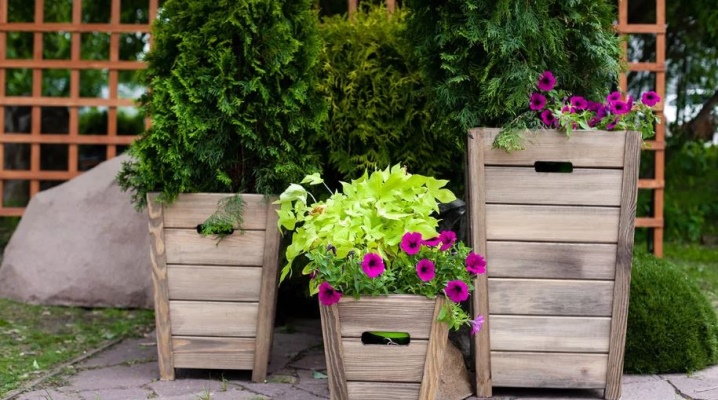
What can best convey the atmosphere and create a correct, pleasant and clean climate in the living space and decorate the adjoining territory? Of course, these are various plants: flowers, small ornamental bushes or trees. More and more often, beautiful and unusual pots are used today for planting plants, with which you can even proportionally change the room and give a special zest to landscape design.
In this article we will tell you everything about flowerpots. We will define the meaning, scope, types and selection criteria. Also, and this is very important, we will tell you what flowers can be grown in pots of this kind.
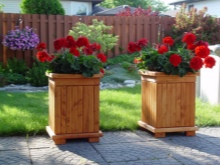
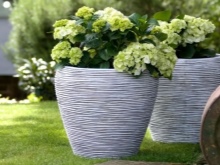
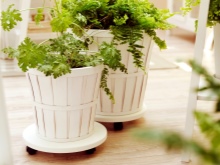
What it is?
A flower pot is a special construction for growing plants, mostly using wood.
All experienced flower growers today prefer to use tubs for growing their plants.
They have the following advantages and features:
- each plant is individual and it needs a certain type of soil for proper growth, a tub is a closed structure, you can pour into it exactly the soil that is preferable for a certain type of culture, and it will not mix with the soil in the flowerbed;
- plants are less likely to be attacked by various insects and pests;
- if the flower is sick, it is enough to simply isolate it from others and transplant it into a new, more suitable soil, take all preventive measures;
- watering and individual feeding is easier;
- plant growth activity can be controlled;
- the ability to move a flower to any other place without the need for a transplant;
- tubs fit perfectly into absolutely any type of landscape design. With their help, you can create new, interesting compositions without harming the plant.
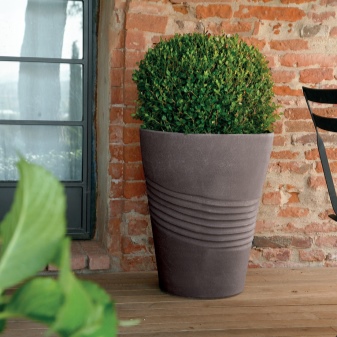
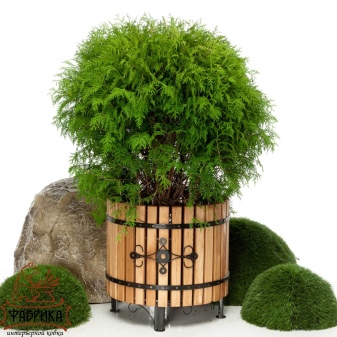
It is also worth noting that on the modern market there is a wide selection and assortment of similar products of various shapes, sizes and colors.
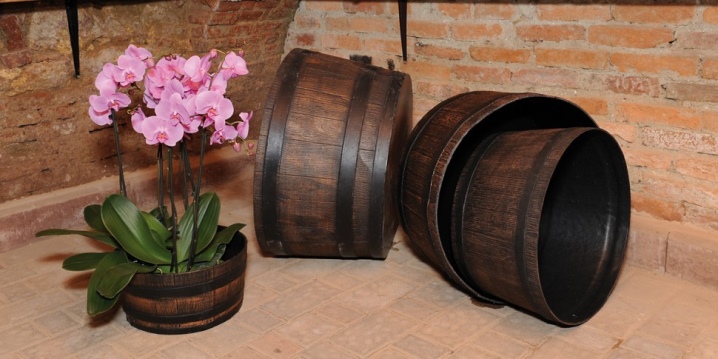
Where is it used?
Since tubs are very different, they can be used anywhere. There are special outdoor tubs for the home. For example, if you live in a small apartment, you can easily plant a flower in a small container. A small tub with flowers will look great on the loggia or on the balcony.
The installation site of the structure is influenced by its size, material of manufacture and appearance. When choosing a tub, it is imperative to take into account exactly where it will be installed.
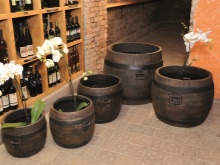
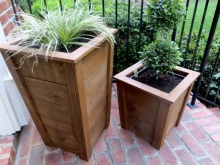
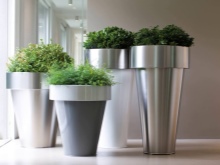
Species overview
The range of such containers for plants is quite diverse. They can differ in size, shape, design and, of course, the material from which they are made.
In shape, flower designs are:
- rectangular;
- round;
- square;
- conical;
- cylindrical;
- triangular.
The size can be small, medium and large. As for the classification by material of manufacture, it is worth familiarizing yourself with it in more detail.
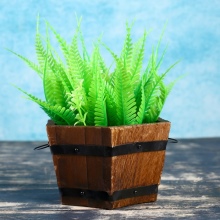
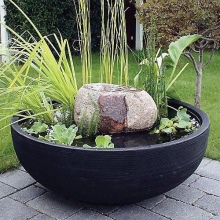
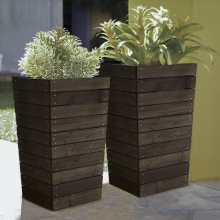
Fiberglass
The tub, made of fiberglass, is characterized by functionality and good looks. It is most often used for growing plants outdoors. Fiberglass is a durable and weather-resistant material. A special processing method makes it possible to obtain a surface with a special structure, which has increased strength.
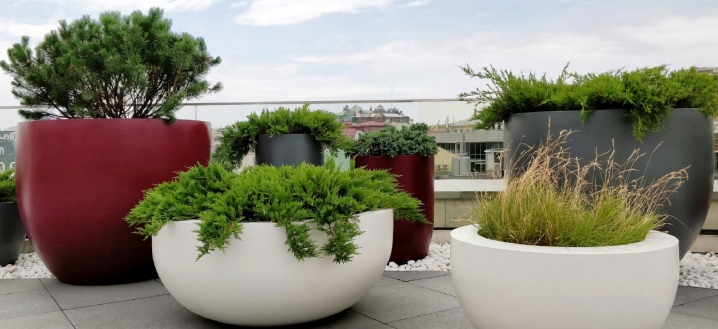
Zinc
Zinc flower pots are distinguished by their functionality and elegant appearance, therefore they are an excellent design addition, both indoors and in the flower bed. They are characterized by their low weight, which makes them easy to transport, and resistance to weather disasters.
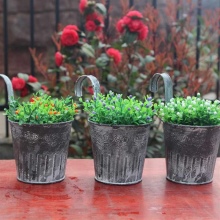
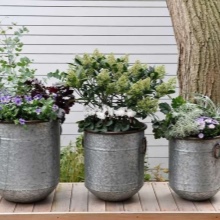
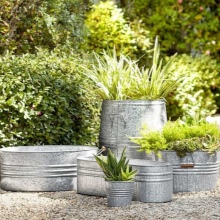
Rattan
This is an extremely beautiful container, similar in structure and appearance to wood. The place in which it is installed immediately transforms, becomes comfortable and warm.
Rattan is an environmentally friendly and safe material, so a tub made of such material can be installed in an apartment without fear.
As for the disadvantages, it is worth noting the fact that rattan does not tolerate high humidity. Under the influence of moisture, mold begins to form on it. That is why such a container is not recommended to be installed outdoors. Of course, a rattan tub can be installed in the garden, but you need to monitor the weather and, if necessary, move the structure.
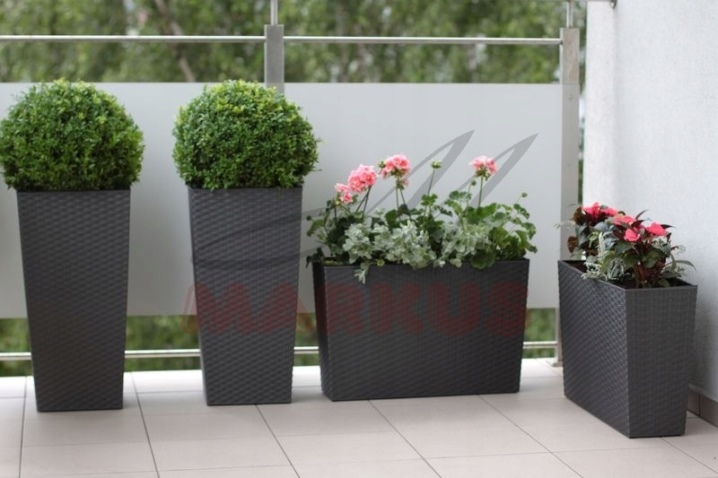
Wooden
This is a real classic. Wood is a natural natural material that "breathes" and thus saturates the plant planted in a wooden pot with the necessary amount of oxygen.
Wooden tubs are distinguished by their excellent appearance, they are in good harmony with any design and are suitable for all types of interior. They come in different colors, it depends on the type of wood that was used for the production of the structure. In the manufacturing process, the material is additionally coated with various paints and varnishes, which create an additional protective layer on the tree, thanks to which the tub can be installed outdoors.
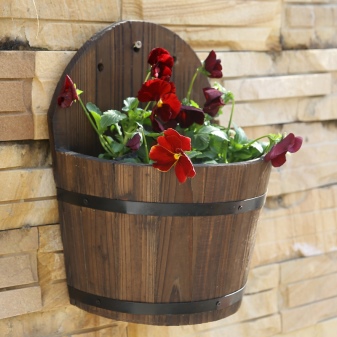
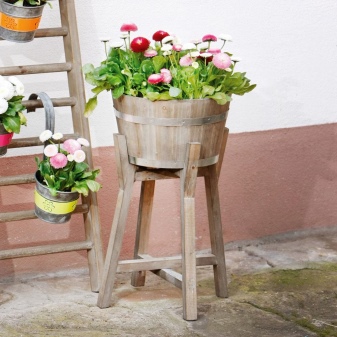
Ceramic
This kind of flowerpot will surely fill your home or garden with incredible and unique Mediterranean charm. Plants such as lavender, basil, parsley and other greens are the most common inhabitants of ceramic pots.
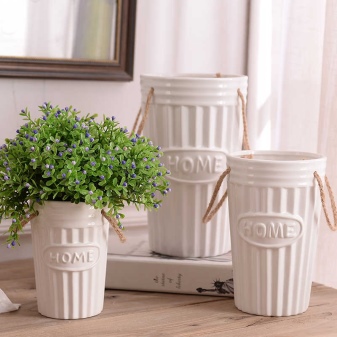
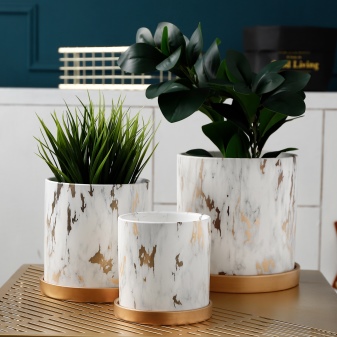
Plastic
Plastic flowerpots are not very popular. The reason for this is the low stability of the material. It is best to install such a pot exclusively indoors, since outdoors, most likely, it will quickly receive mechanical damage.
Only those plants whose root system is small and does not grow quickly should be planted in a plastic structure.
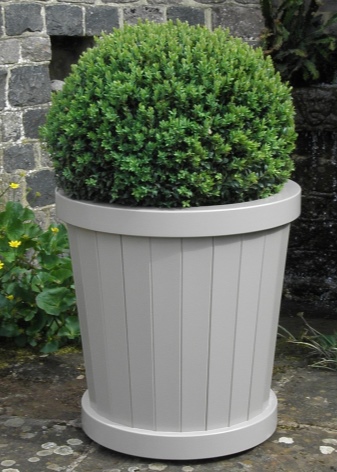
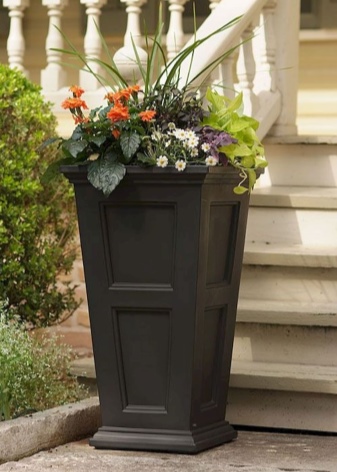
Concrete
Concrete is a tough, strong, durable and resistant material that is also quite heavy. Considering all of the above, we can conclude that a concrete tub is an ideal option for placement in a winter garden or on a flower bed, in the open air.
A fundamental concrete tank is not afraid of anything at all. But the plant will not be comfortable enough in it.
This is due to the fact that the material does not allow air to pass through well, so you need to pay attention to the presence of ventilation holes at the bottom of the structure. The concrete pot is difficult to transport and is quite heavy.
As you can see, the assortment of tubs is really large, there are plenty to choose from. The most important thing is to understand which plant will be planted in a pot and where it will be installed.
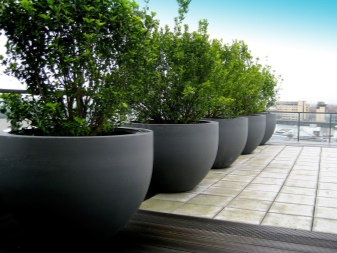
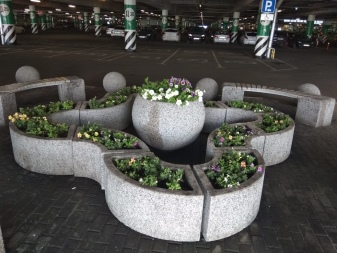
Selection Tips
In order for the tub to look harmonious in the interior, and the plant to be comfortable, you need to be very serious about its choice. Certain criteria should be considered.
- Dimensions of the structure. You should know exactly what kind of flower you will plant. It is necessary that the size of the pot is proportional to the flower, its root system and crown.
- Design features of the container, namely, whether there is a drainage hole in it. Its presence will provide constant circulation of air masses and removal of excess moisture.
- Design. It is very important that the tub, its shape and color design ideally match the overall interior of the room.
Also, experts recommend taking into account the activity of plant growth. If it grows quickly, it is best to consider large structures, otherwise you can choose medium and small in size.
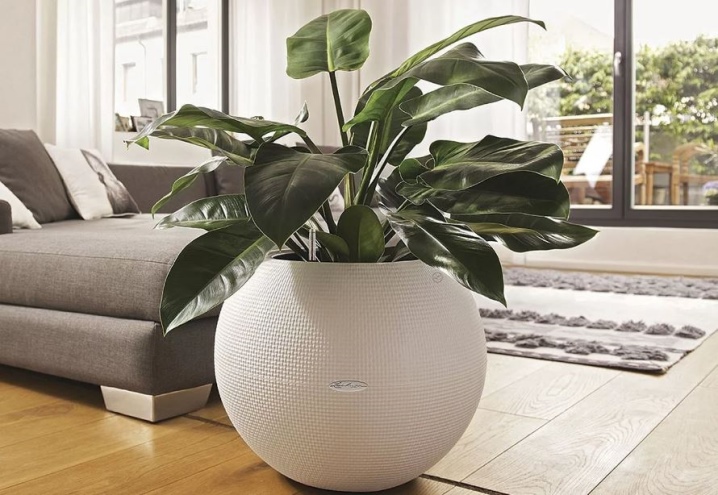
What kind of plants can you grow?
The tub is a universal container, that is, it is suitable for almost all plants. Most often they place in it:
- undersized trees;
- ampelous plants;
- citrus;
- all kinds of flowers and shrubs.
Quite often recently, in tubs you can see roses, hydrangeas, gladioli, ficus, petunia, fern, purslane or hibiscus.
Indoor flowers can also be planted in a tub. Absolutely all crops that hibernate in the open field will feel great in frosts and in a tub. For the design of the local area, tub plants are very often used, among which you can observe the evergreen thuja.
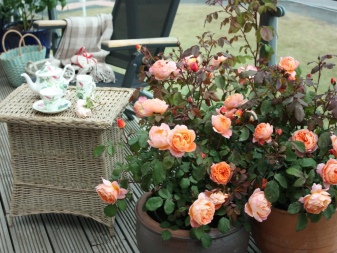
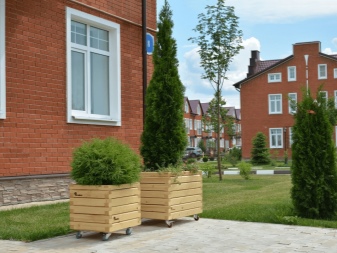
Plants in a tub are ideal for gardening a flower bed. Using such, at first glance, simple and uncomplicated design, you can effortlessly give your plot or home charm, individuality and sophistication.
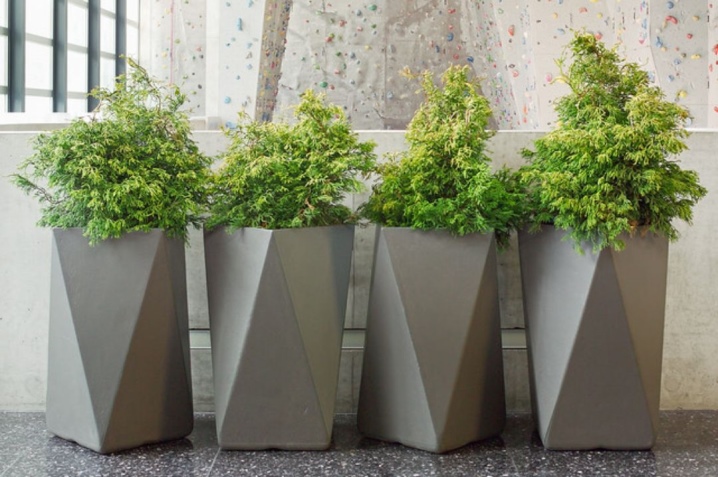













The comment was sent successfully.